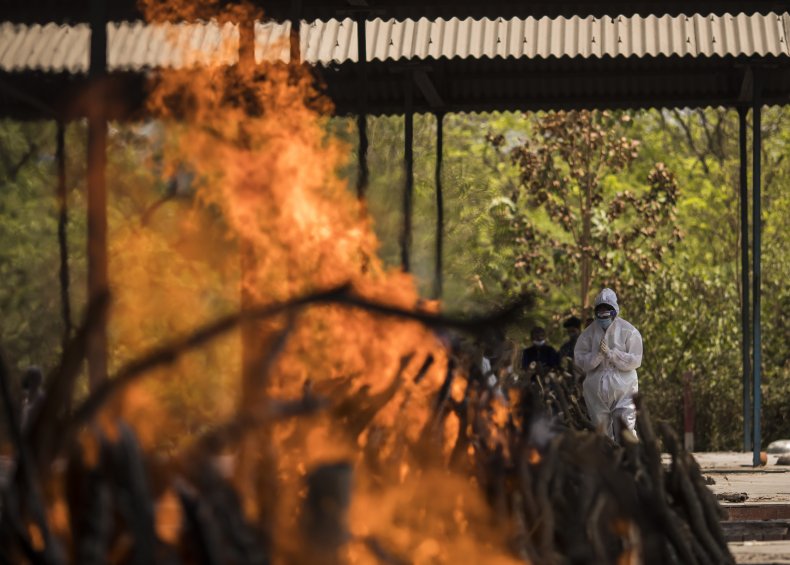The New Delhi High Court on Wednesday ordered that oxygen should be diverted from industrial sites to hospitals to save lives amid a surge of COVID-19 cases in India.
“You can’t have people die because there is no oxygen. Beg, borrow or steal, it is a national emergency,” the judges said, responding to a petition by a New Delhi hospital seeking the court’s support, the Associated Press reported.
India reported a global-record 314,000-plus new cases on Thursday (for a total of nearly 16 million, second only to the U.S.), stretching medicine and supplies available to curb the spread of infection. Fatalities rose 2,104 in the past 24 hours, raising India’s overall death toll to 184,657, the Health Ministry said.
The main cremation ground at Lucknow, the state capital, received nearly 200 bodies on Sunday, AP reported. “The bodies were everywhere, they were being cremated on sidewalks meant for walking. I have never [seen] such a flow of dead bodies in my life,” said Shekhar Chakraborty, 68.
For more reporting from the Associated Press, see below.

Anindito Mukherjee/Getty Images
Lockdowns and strict curbs have brought pain, fear and agony to many people in New Delhi and other cities.
“The levels of testing are so low that the people who didn’t get tested and then died of a stroke or a heart attack that was likely COVID-related would not be reported as a COVID death,” Ramanan Laxminarayan, an economist and epidemiologist, who is the founder and director of the Center for Disease Dynamics, Economics & Policy, said to Yahoo News.
In scenes familiar across the country, ambulances are rush from one hospital to another, trying to find an empty bed. Grieving relatives line up outside crematoriums where the number of dead bodies has jumped several times.
“I get numerous calls every day from patients desperate for a bed. The demand is far too much than the supply,” said Dr. Sanjay Gururaj, a doctor at Bengaluru-based Shanti Hospital and Research Center.
“I try to find beds for patients every day, and it’s been incredibly frustrating to not be able to help them. In the last week, three patients of mine have died at home because they were unable to get beds. As a doctor, it’s an awful feeling.”
Yogesh Dixit, a resident of northern Uttar Pradesh state, said earlier this week that he had to buy two oxygen cylinders at 12,000 rupees ($160) each, more than twice the normal cost, for his ailing father because the state-run hospital in Lucknow had run out of supplies.
He bought two “because the doctors can ask for another oxygen cylinder at any time,” he said, adding that he had to sell his wife’s jewelry to meet the cost.
In Kanpur, also in Uttar Pradesh, 35 temporary platforms have been set up on Bithoor-Sidhnath Ghat along the Ganges River to cremate bodies.
The Health Ministry said that of the country’s total production of 7,500 metric tons (8,300 U.S. tons) of oxygen per day, 6,600 metric tons (7,275 U.S. tons) was being allocated for medical use.
It also said that 75 railroad coaches in the Indian capital have been turned into hospitals, providing an additional 1,200 beds for COVID-19 patients.
Newsweek, in partnership with NewsGuard, is dedicated to providing accurate and verifiable vaccine and health information. With NewsGuard’s HealthGuard browser extension, users can verify if a website is a trustworthy source of health information. Visit the Newsweek VaxFacts website to learn more and to download the HealthGuard browser extension.
No comments:
Post a Comment